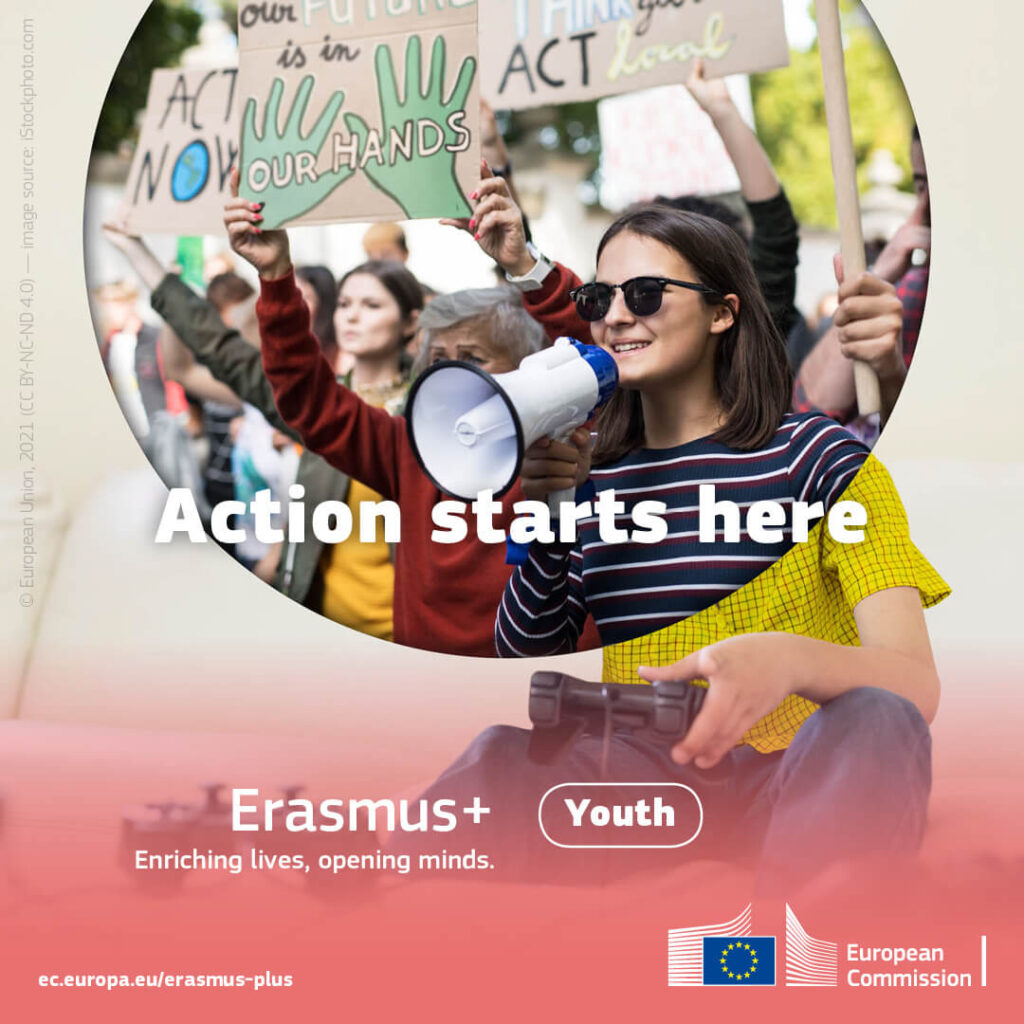There are lots of opportunities for young people and organisations active in the youth field to get involved in Erasmus+.
Erasmus+ Youth is for all young people aged 13 to 30, as well as youth workers, youth organisations, or any group that works directly with young people.
Youth organisations can receive funding from Léargas to:
- organise youth exchanges
- support the professional development of youth workers
- strengthen the voice of young people through projects that connect them with local and European policymakers
- build projects with like-minded organisations in other countries to exchange best practice and/or create innovative tools and methods for their field
What are the aims of Erasmus+ in Youth?
- Increase the skills and competences of young people and youth workers
- Support interaction between young people from different cultural backgrounds
- Promote social inclusion and solidarity amongst young people
- Empower young people to be active citizens and have a voice in decision making
- Support young people to access the labour market
- Develop quality improvements in youth work
- Support the development of knowledge and evidence-based youth policy
- Support the recognition of non-formal and informal learning
- Strengthen the international dimension of youth activities.
How does it work?
The types of projects and activities that can be funded by Erasmus+ Youth are:
- Youth Exchanges (KA1)
- Mobility of Youth Workers (KA1)
- Youth Participation Activities (KA1)
- Small-scale Partnerships (KA2)
- Cooperation Partnerships (KA2)

Youth Mobility Projects
Key Action 1 Youth Mobility Projects support non-formal and informal learning opportunities for young people and youth workers.
Young people and youth workers can spend time abroad building their life experience, learning about different cultures, improving their language and other skills and building on their professional development.
Young people can also take part in, or run projects that encourage youth participation in democratic life, give young people the opportunity to take part in civic society and bring them together with decision makers at a local, regional, national or transnational level.
Learning activities in Youth aim to have a significantly positive impact on young people, youth organisations and communities.
Possible activities include:
- Youth Exchanges
- Youth Participation activities which are youth-driven local, national and transnational participation projects run by informal groups of young people and/or youth organisations encouraging youth participation in Europe’s democratic life
- Mobility projects for the professional development of Youth Workers.
For more details contact our Project Support and Development Team.
What is a partnership project?
A partnership project is one where an organisation works with other relevant groups across Europe to develop, transfer or implement innovative practices. Funding is available for Irish organisations, institutions, companies and research organisations that are active in Adult Education, School Education, VET or Youth. Examples of partnerships projects include:
- An Adult Education organisation working with expert organisations to develop an innovative training course
- A school working with other schools to develop its approach to digital learning
There are two types of partnership project:
- Cooperation Partnerships
- Small-scale Partnerships
Cooperation Partnerships
Cooperation Partnerships aim to:
- Increase quality in the work, activities and practices of the organisations and institutions involved
- Build capacity of organisations to work transnationally and across sectors
- Address common needs and priorities in the fields of education, training and youth
- Enable transformation and change, leading to improvements and new approaches at individual, organisational or sectoral level.
Small-scale Partnerships
Small-scale Partnerships have similar aims to Cooperation Partnerships and are designed to widen access to Erasmus+. They are shorter and have simpler administrative requirements than Cooperation Partnerships. They aim to support:
- Grassroots organisations
- Less experienced organisations
- Newcomers to Erasmus+.
For more details contact the Project Support and Development Team.


